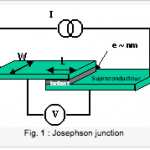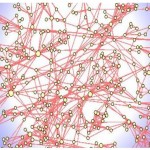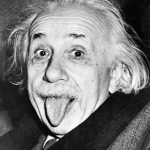This post is by Dr. Domenico Lepore, an international expert on systems thinking for management. He is the Founder of Intelligent Management Inc. An organization requires great focus in order to keep up with the continuous innovation process. The focus needed can only be developed as a result of an improved “collective systemic intelligence”. By […]
Can a Standard Stimulate Innovation or Stifle it? Standard of Innovation Part 4 of 5
Dr. Domenico Lepore, Founder of Intelligent Management Inc. and international expert in Quality and Systems Thinking for organizations, continues his series on the Standard of Innovation. Why do we have Standards? Standards are created to allow operationally defined quantities to be measured in a way that makes sense. After having defined “Volt” we need a […]
The Interconnection of Leadership, Quality and Innovation – Standard of Innovation Part 3 of 5
Dr. Domenico Lepore, Founder of Intelligent Management Inc. and international expert in Quality and Systems Thinking for organizations, continues his series on the Standard of Innovation. Leadership: definition and role Earlier in this series we suggested the first 2 steps towards prosperous innovation: 1) creating an operational definition 2) challenging the assumption that imagination is […]
Standard of Innovation Part 2 of 5: Imagination Does Not Equal Innovation
This post is by Dr. Domenico Lepore, an international expert on systems thinking for management. Together with Oded Cohen he developed the Decalogue Management Methodology, combining the management philosophy of the founding father of Quality, W. Edwards Deming, with the Theory of Constraints. Dr. Lepore is no stranger to standards. The device that resulted from […]
The Standard of Innovation Part 1 – a word about words
This post is by Dr. Domenico Lepore, an international expert on systems thinking for management. Together with Oded Cohen he developed the Decalogue Management Methodology, combining the management philosophy of the founding father of Quality, W. Edwards Deming, with the Theory of Constraints. Dr. Lepore is no stranger to standards. The device that resulted from […]
Why Physics is Crucial for Understanding Global Business: the Network of Corporations
The entire world is in turmoil; people are on the streets complaining about the economy and the way politicians and experts are dealing with the crisis. The ‘Occupy Wall Street’ movement is gaining somewhat fuzzy momentum. Today they are organizing a march against Goldman Sachs in New York. Is the corporate world intrinsically unfair? A […]
Educating for complexity: How do we transform schools into centres of innovation?
“The challenge we face is nothing less than transforming our schools from assembly-line factories into centers of innovation.” Those are the words of Michael Bloomberg, Mayor of New York City where the iZone project is transforming education. Clearly, the 19th style classroom and methods are not cutting it for the challenges of today. The iZone […]
Science = Innovation?
Today’s blog post is by Intelligent Management team member Dr. Giovanni Siepe, a theoretical physicist by training and an expert in statistical methods for management. The scientific community is still looking for confirmation of a seemingly revolutionary scientific discovery: neutrinos travel at a speed faster than light. An experiment was conducted where neutrinos were “shot” […]
While Greece sinks, Canada launches a thousand ships
In the past few days we have read about two starkly contrasting scenarios. In one, the Canadian government awarded three decades of shipbuilding work (33 billion dollars) to two private shipbuilding yards in Halifax and Vancouver. Reports from Greece, instead, speak of entrepreneurs sacking workers who earn 1200 Euros per month to replace them with […]
Destroying the markets with flawed assumptions
Today’s blog post is by team member Dr. Giovanni Siepe, a theoretical physicist by training and an expert in statistical methods for management. The Nobel Prize in Economics for 2011 went to Thomas Sargent and Christopher Sims. The reason for assigning the Prize to Prof. Sargent is his model on cause and effects as applied […]














